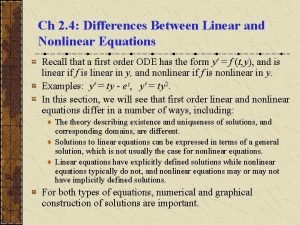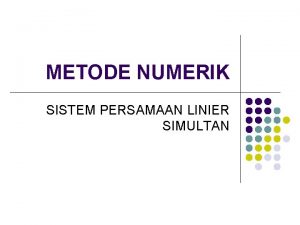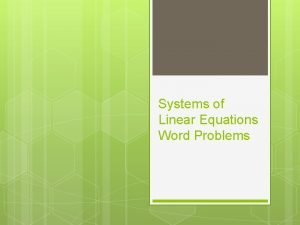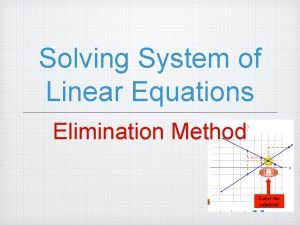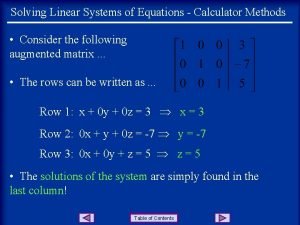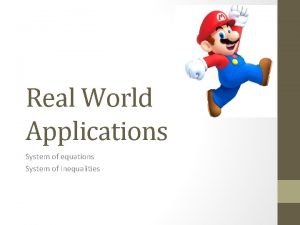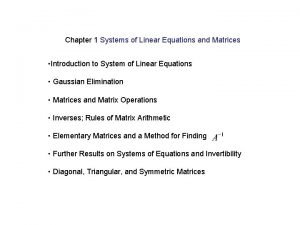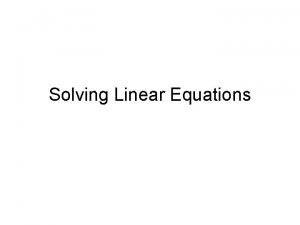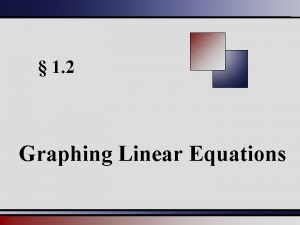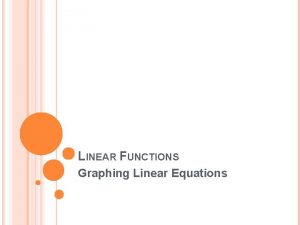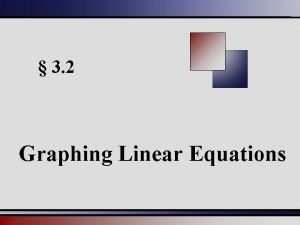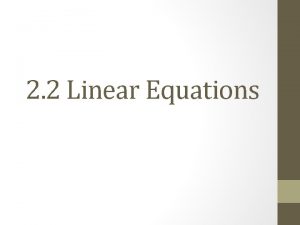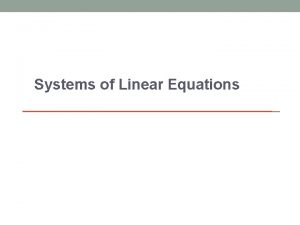Systems of Linear Equations Systems of Linear Equations







- Slides: 7

Systems of Linear Equations

Systems of Linear Equations A system of linear equations is simply two or more lines graphed on the same graph. They are also called simultaneous linear equations, meaning that the graphs of the two lines are present at the same time.

Systems of Linear Equations When two lines are graphed on the same rectangular coordinate system, three scenarios are possible: The lines can intersect. The lines can be parallel. The lines can be coincident (same line)

Intersecting Lines If a system has one, or more solutions, it is said to be consistent. If the lines intersect: the system of equations is consistent. the equations are independent. there is exactly one solution – an ordered pair the solution will be the point of intersection (x, y)

Coincident Lines If a system has one, or more solutions, it is said to be consistent. If the lines are the same - coincident: the system of equations is consistent. the equations are dependent. there are infinite solutions – all the points on the lines the solution will be expressed in set notation. {(x, y)|x + y = 6}

Parallel Lines If a system has no solutions it is said to be inconsistent. If the lines are parallel: the system of equations is inconsistent. there is no solution set. if the solution is expressed in set notation, it is the empty

Systems of Linear Equations There is quite a bit of vocabulary involved in this section. I strongly recommend flash cards!
 Quadratic simultaneous equations
Quadratic simultaneous equations Difference between linear and nonlinear equations
Difference between linear and nonlinear equations Metode gauss naif
Metode gauss naif System of linear equations word problems
System of linear equations word problems Solving systems of equations
Solving systems of equations Augmented matrix system of equations calculator
Augmented matrix system of equations calculator Systems of linear equations real world applications
Systems of linear equations real world applications Systems of linear equations matrices
Systems of linear equations matrices

